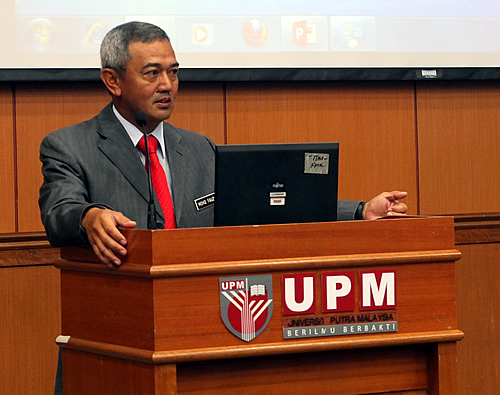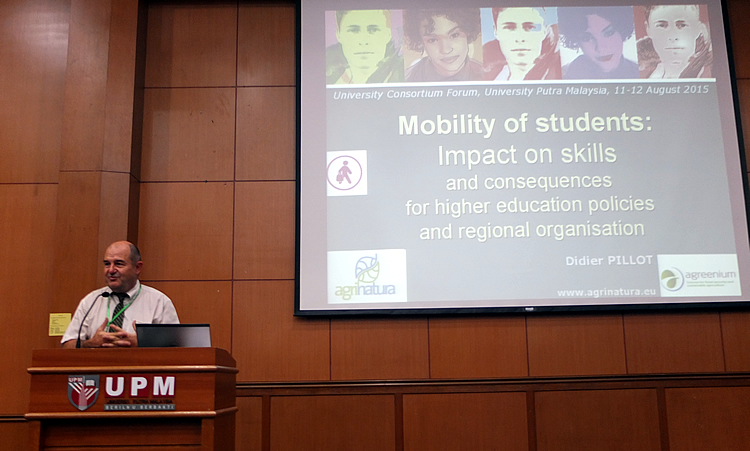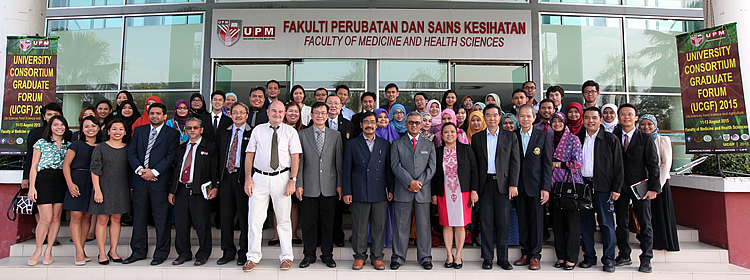
“Be proud, because you are the energetic and young scientists that comprise one of the strongest economic regions in the world,” exclaimed Prof. Dato Dr. Mohd. Fauzi Hj. Ramlan, UPM Vice Chancellor and the current Chair of the SEARCA Governing Board, during the Opening Ceremonies of the two-day program.
The UCGF 2015 was held at the UPM Faculty of Medicine and Health Sciences, with graduate students and officials from UPM, Bogor Agricultural University (IPB), Universitas Gadjah Mada (UGM) both in Indonesia, University of the Philippines Los Baños (UPLB), and Kasetsart University (KU) in Thailand as participants.
Dr. Didier Pillot, Vice President of the European consortium Agrinatura, in his keynote speech discussed the current challenges and opportunities of student and faculty mobilities. According to Dr. Pillot, mobilities do not just result to the acquisition of technical skills but more importantly, they should lead to new skills and competencies that can become useful tools in the student’s professional life.
These tools include learning a foreign language and intercultural awareness, ability to adapt to changes and new situations, capacity to work in teams and deal with complex problems, capacity to think critically and communicate effectively, and the added value in the disciplinary progress.

“To all universities, there is no escape to internationalization,” underscored Dr. Pillot. Organizing this at the regional scale is a good starting point because a number of emerging concerns occur at the regional level. He also emphasized that the organization has to come from the universities themselves as regard to mutual recognition of courses, assessment schemes, quality assurance, and other academic concerns. Harmonization, rather than standardization, may be more effective, where the differences between universities are respected, but compatibility within the system is addressed. He said that in the end, students remember more not what is taught in the universities, but rather the learning environment that the university was able to provide.
Apart from the pleneary sessions, a total of 34 graduate students presented their respective research papers on the parallel sessions on life science, food science and agriculture.
The UCGF aims to provide an opportunity for graduate students from UC members to share new knowledge, research ideas, and experiences in an open platform; offer academic training and develop the next generations of scholars; encourage trans-disciplinary studies and promote greater integration of research through strategic partnership among the UC members; and strengthen the relationship between and among the UC members.
After the forum, a UC special meeting is staged on 13-14 August 2015, to discuss the status and details of the UC activities on the Dual Degree Program, explore collaborative activities with Agrinatura, as well as discuss updates on the researches under the Umbrella Program on Food and Nutrition Security and present the draft Umbrella Program on Climate Change Adaptation and Mitigation for Southeast Asia.
